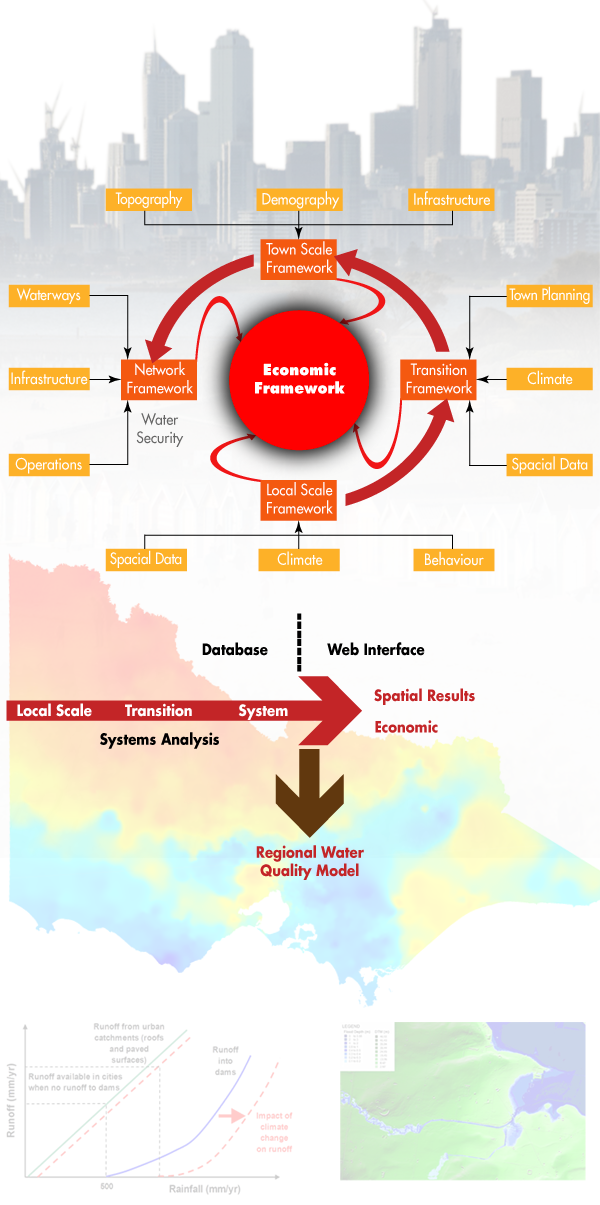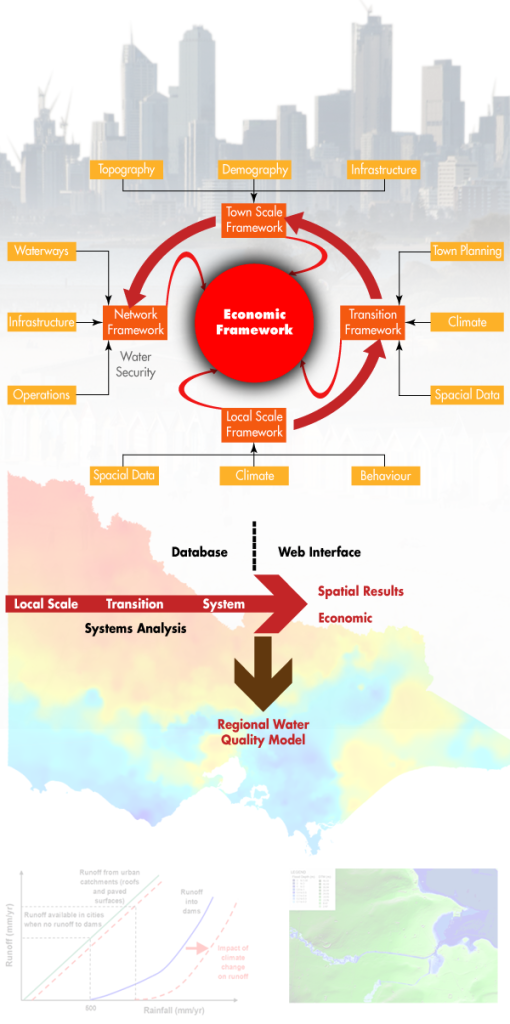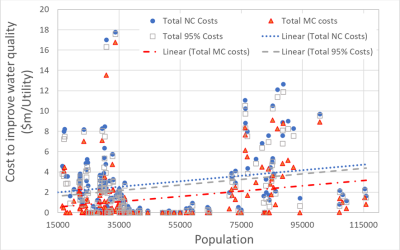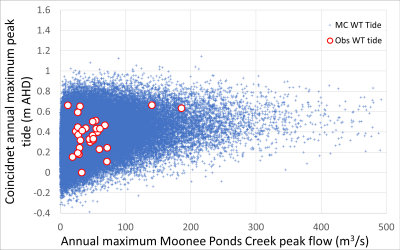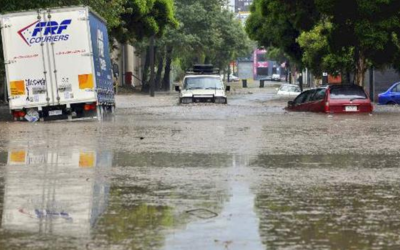 Systems Analysis for policy and strategy
Systems Analysis for policy and strategy
Systems science processes that incorporate macroeconomic analysis of water reforms, and reveal trade-offs in water cycle projects.
Peter J Coombes and Michael Barry
Presentation at the CIWEM seminar at 6 pm on 18 July 2017 at 106-109 Saffron Hill, Farrington, London. EC1N 8QS
The Systems Framework is discussed in many publications focused on describing projects or policies, water reform strategies and new research insights. This presentation provides an overview of the Systems Framework methodologies for analysis of policy, strategy and design developed over the last two decades. The framework integrates water cycle, environmental and economic processes from the “bottom up” using all available big data and integrating spatial and temporal scales of behaviour. Advances in computing power allowed this quantum process to be underpinned by continuous simulation of local behaviour, multiple replicates of processes and decisions, and scenario analysis.
This expansionist approach to analysis reveals hidden challenges and opportunities for urban areas and regions. The Systems Framework can be applied to detailed and targeted ‘what if’ analyses, including assessments of future water security and economic welfare under a range of climatic and population growth scenarios, and future alternative strategies or policies. The spatial and temporal detail within the Systems Framework allowed understanding, reproduction and testing of the complex interactions between waterways, reservoirs, operations, water demands, water restrictions, energy demands, financial impacts and policy interventions.
This methodology includes hind casting of the water cycle and linked economic simulations across historical periods with known financial, macroeconomic and resources information to reveal micro- and macro-economic drivers of regions. The authors are developing open source and web-enabled applications that will allow greater interaction with the System Framework. This initiative is supported by a number of new science publications.

